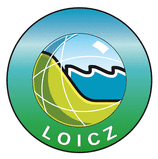Microcredit for Rural Water Supply and Sanitation in the Mekong Delta Policy implementation between the needs for clean water and ‘beautiful latrines’
The rural population of the Mekong Delta is facing increasing problems due to the contamination of domestic water sources. Around half of the population lacks year round access to clean water. In combination with bad hygiene behaviour and poor sanitation there is a high risk for water-related diseases. On the policy level, microcredit schemes have globally become a popular element in addressing such problems.
The present paper analyses the effectiveness of such a microcredit programme for rural water supply and sanitation in the context of the rural Mekong Delta in Vietnam. It is concluded that the programme has a positive effect with regard to the safer disposal of human excreta and the water quality in rivers and canals. However, the programme has only a marginal impact on poverty reduction as it reaches only better-off households that already have access to clean water. On a more general level, the paper shows how the outcome of rural water supply and sanitation policies are strongly influenced by a system of local ecological, technological and social settings, in particular by the interests of involved stakeholders. The authors finally challenge the common assumption that water supply and sanitation should in all circumstances be integrated into the same policies.
Nadine Reis, Peter P. Mollinga
Direct download: download




